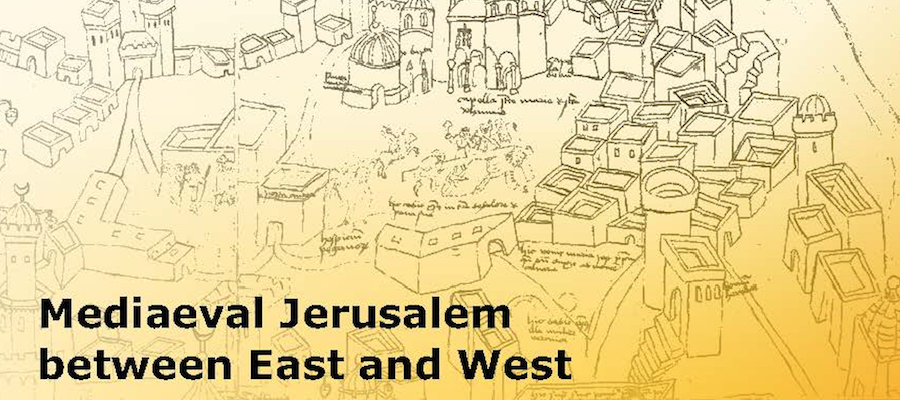Mediaeval Jerusalem between East and West, Zoom Mini-Symposium, June 17, 2020, 12:00–4:30 pm
The DFG Collaborative Research Group "Beyond Canon: Heterotopias of Religious Authority in Ancient Christianity" is hosting a Zoom mini-symposium on June 17, 2020.
Speakers
Sharing the Altars: Latin-Greek Liturgical Encounters in Late Medieval Jerusalem
Valentina Covaci ((New Europe College)
Jerusalem's and Palestine's Portrayals in Syriac Chronicles and Hymnologies on Second Islamic Conquest and the Subsequent Period
Catalin Stefan Popa (KU Leuven)
Popa’s presentation will provide an overview of Syriac literature in the context of the second Islamic conquest of the Holy City. It will tackle several distinct sources, spanning a number of literary genres: Syriac chronicles, poems, and breviaries that offer valuable insight into the perspective of Syriac Christian narrators on events occurring in the Holy Land on the one hand, while touching on the very presence of Syriac communities in Palestine, and in Jerusalem in particular on the other.
Pilgrims in an Imaginary Jerusalem: Representations of the Holy Land in Coptic Literature
Alin Suciu (Göttingen Academy of Sciences and Humanities)
After the Council of Chalcedon in 451 CE, the Egyptian Church separated dogmatically from the international Greek Christianity. However, although the disruption was sore, the Copts still perceived themselves as part of the Byzantine world long after the schism of Chalcedon. Thus, Egyptian Christians continued to recognize not only the political authority in Constantinople, hoping for the advent of an orthodox emperor, but also the apostolicity of the sees of Rome, Antioch, and Jerusalem. Suciu’s paper shows that Coptic authors imagined an anti-Chalcedonian orthodox Jerusalem, in a period when the holy places were under Melkite domination. This imaginary Holy Land persisted in the cultural memory of Copts until it was belittled by the emergence of local pilgrimage sites connected with the itinerary of the Holy Family in Egypt.
RSVP requested.
